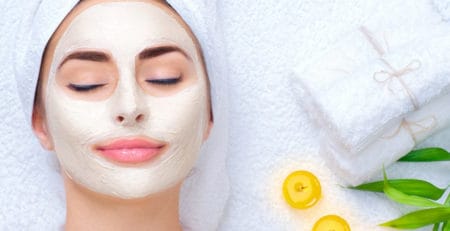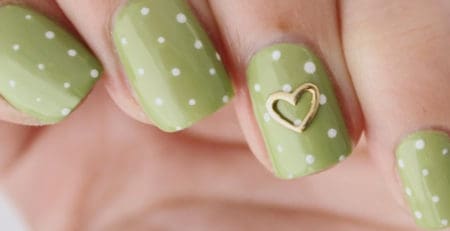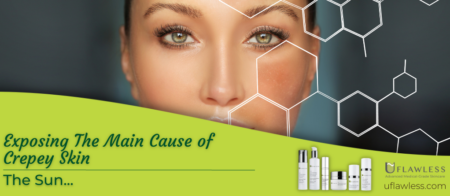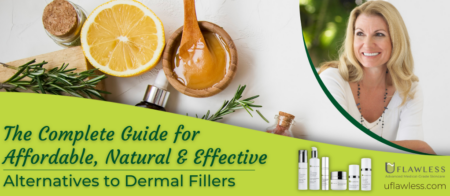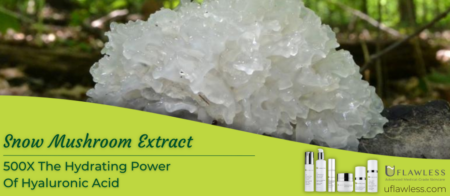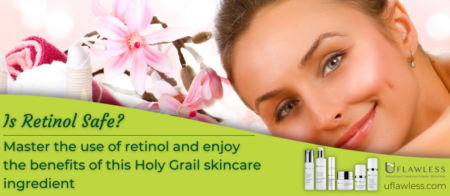Top 12 Skincare Questions You Wish You’d Asked Your Dermatologist
As skincare experts, we answer a lot of skincare questions. The truth of the matter is that we’ve also been observing that when people go to their dermatologist, they forget to ask all of the questions.
Often, patients leave with lingering questions, wishing they had more time to discuss their skincare queries.
Understandably, dermatologists are in high demand and their schedules can be packed.
However, this should not limit the pursuit of knowledge about maintaining and enhancing our skin’s health.
In the spirit of filling this information gap, I’ve put together a list of the
Top 12 skincare questions my clients frequently mention wishing they had asked their dermatologist. Let’s unravel these questions together.
What products slow down aging? Is the #1 Question You Wish You’d Ask Your Dermatologist
The key players in slowing down aging are products rich in antioxidants, retinoids, peptides, and sunscreens.
Details about each ingredient that slows down aging
Any good skincare product should carry one or more of these ingredients. The more the better.

Antioxidants for slowing down aging
These compounds neutralize harmful free radicals produced by environmental stressors like UV radiation and pollution.
They can reduce inflammation, repair skin damage, and prevent signs of aging.
Some common antioxidants used in skincare include vitamins C and E, resveratrol, and green tea extract.
Vitamin C, for instance, is known to brighten skin and stimulate collagen production, while vitamin E can help protect skin from sun damage.
Retinoids for slowing down aging
Retinoids are vitamin A derivatives known for their potent anti-aging effects.
They can accelerate cell turnover, promote collagen production, reduce fine lines and wrinkles, and improve skin texture and tone.
Retinoids can also help with acne by unclogging pores.
Retinol and tretinoin are examples of retinoids commonly used in skincare.
It’s worth noting that retinoids can cause irritation and sensitivity to sunlight, so it’s crucial to use them as part of a nighttime routine and use sunscreen during the day.
Peptides for slowing down aging
Peptides are short chains of amino acids, the building blocks of proteins such as collagen, elastin, and keratin.
These proteins are the foundations of your skin and are responsible for its texture, strength, and resilience.
By applying peptides topically, you can stimulate your skin to produce more collagen, leading to firmer, less wrinkled skin.
Some peptides also have specific effects, like reducing inflammation, promoting wound healing, or affecting the way melanin is produced in the skin.
Sunscreens for slowing down aging
Sunscreen is an essential part of any skincare routine.
It protects your skin from the harmful UV rays of the sun, which can cause sunburn, premature aging, and increase the risk of skin cancer.
There are two types of sunscreens: physical (or mineral) and chemical.
- Physical sunscreens, like zinc oxide and titanium dioxide, work by sitting on top of the skin to deflect and scatter damaging UV rays away from the skin.
- Chemical sunscreens, like avobenzone and octinoxate, absorb UV rays before they can damage your skin.
By protecting your skin from UV damage, sunscreen helps to prevent signs of premature aging like wrinkles and dark spots.
Remember, it’s always important to patch-test new skincare products and ingredients to make sure they won’t irritate your skin.
Additionally, always consult a dermatologist if you’re unsure about incorporating new ingredients into your skincare routine.
These can protect against free radicals, stimulate collagen production, and prevent UV damage.

Do anti-aging creams actually work?
Yes, provided they contain active ingredients like retinol, antioxidants, peptides, and hyaluronic acid, which are proven to reduce signs of aging by boosting collagen production, hydrating skin, and protecting against environmental damage.
What helps your skin look younger?
A routine of cleansing, moisturizing, applying sun protection, and using products with retinol or peptides can help maintain youthful skin.
Adequate hydration and a healthy diet also play crucial roles.
The Ideal Skincare Routine
Step 1: Cleanse – X3 Chamomile Balancing Cleanser Begin your skincare ritual by washing your face with the X3 Chamomile Balancing Cleanser. Its soothing properties effectively remove impurities and excess oil, paving the way for your skin to better absorb the products that follow.
Step 2: Revitalize – X3 Face Volumizer and X3 Revitalizing Stem Cells Serum After cleansing, apply the X3 Face Volumizer. This anti-aging serum gives immediate plumpness, elasticity, and tone to your skin. Follow it up with the X3 Revitalizing Stem Cells Serum, which works to rejuvenate your skin from within.
Step 3: Firm – X3 Firming Peptide Cream Finally, seal in all the benefits with the X3 Firming Peptide Cream. This cream aids in enhancing skin firmness and reducing signs of aging.
-
X3 Dermal Filler in a Bottle Routine |
Original price was: $339.00.$261.00Current price is: $261.00.
Fewer Touch-Ups During The Year
This X3 Dermal Filler Routine became a life-saver for many women during the pandemic, extending the life of their dermal fillers and keeping their complexion in optimal shape.
With this routine, you can maintain a youthful, revitalized appearance even during the most challenging times.
- reduces fine lines,
- enhances skin volume
- prolongs dermal filler effects,
- provides a revitalized, youthful complexion.
Which is better: anti-aging cream or a serum to slow down aging?
Both have their merits. Serums are lightweight, faster absorbing, and usually more potent, whereas creams are thicker and offer more moisturization.
For best results, use them together in your routine.
The best Sequence In a Skincare Routine Between Serum and Moisturizer
In an effective skincare routine, the general rule of thumb is to apply products in the order of their consistency, from the thinnest to the thickest.
The reason behind this is the principle of absorption.
Thinner, more liquid products (like serums) can’t penetrate thicker, more creamy ones (like moisturizers) effectively.
Serums are packed with a high concentration of active ingredients.
They are lightweight and designed to penetrate deeply into the skin to deliver these actives.
If a moisturizer, which is thicker, were applied before the serum, it could prevent the serum from being absorbed properly because of its occlusive nature.
On the other hand, applying a moisturizer after a serum helps to seal in the serum with its occlusive layer, enhancing the absorption of its active ingredients, and also providing an additional layer of hydration.
So the order of application matters to get the maximum efficacy of your skincare products.
What is the best age to start anti-aging skincare?
It’s usually recommended to start in your mid-twenties, with products like sunscreen and antioxidants to prevent damage.
In your thirties, you might add retinol and peptides to the mix.
What serums are good for aging?
Look for serums with retinol, vitamin C, hyaluronic acid, or peptides.
These ingredients can reduce wrinkles, brighten skin, boost collagen production, and provide hydration.
Serums are a vital part of a skincare routine due to their unique properties and the numerous benefits they offer. Here are some key advantages of using a serum:
- High Concentration of Active Ingredients: Serums contain a higher concentration of active ingredients compared to other skincare products. This means they can deliver a greater amount of nutrients deep into the skin.
- Deep Penetration: Due to their lightweight and thin consistency, serums can penetrate deep into the skin layers. This allows them to deliver active ingredients where they can provide the most benefits.
- Targeted Treatment: Serums are often designed to target specific skin concerns, such as wrinkles, dark spots, or dehydration. Using a serum can therefore offer a more focused and effective treatment.
- Boosts Hydration: Many serums contain ingredients like hyaluronic acid, which can help to boost hydration by attracting and retaining moisture in the skin.
- Enhances Skin Texture: Regular use of serums can improve skin texture, making it feel smoother and more refined. They can also help to balance oil production in the skin.
- Boosts Other Skincare Products: Applying a serum before your moisturizer can boost the effects of the other products in your skincare routine. The serum’s deep penetration helps pave the way for your subsequent products to work more effectively.
- Anti-Aging Benefits: Many serums contain anti-aging ingredients like retinol or vitamin C. These can help to stimulate collagen production, brighten the skin, and reduce signs of aging such as fine lines and wrinkles.
Incorporating a serum into your daily skincare routine can significantly enhance your skin’s health and appearance over time.
It’s important to choose a serum that is suitable for your skin type and addresses your specific skin concerns to maximize these benefits.
Is vitamin C good for anti-aging?
Absolutely. Vitamin C is a potent antioxidant that can neutralize free radicals, boost collagen production, and brighten your skin, all contributing to a youthful appearance.
- Boosts Collagen Production: Vitamin C is known for boosting collagen synthesis. Collagen is a protein that gives our skin its firmness and strength. As we age, collagen production decreases, leading to wrinkles and sagging skin. By boosting collagen, Vitamin C helps maintain skin firmness and reduces the appearance of wrinkles.
- Protects from Sun Damage: As an antioxidant, Vitamin C neutralizes harmful free radicals that are produced when skin is exposed to UV light. It doesn’t replace sunscreen but works synergistically to enhance sun protection.
- Reduces Hyperpigmentation: Vitamin C inhibits the enzyme tyrosinase, which helps to reduce melanin production, thereby decreasing the appearance of dark spots and hyperpigmentation for a more even skin tone.
- Improves Hydration and Moisture: Some forms of Vitamin C, such as magnesium ascorbyl phosphate, have been shown to decrease transepidermal water loss, helping your skin better retain moisture.
- Brightens Skin: Vitamin C can brighten the complexion and increase radiance by reducing dullness and giving the skin a youthful glow.
- Heals and Repairs Skin: By accelerating the production of new skin cells, Vitamin C can help to heal and repair damaged skin, reducing the appearance of scars, blemishes, and other skin imperfections.
- Reduces Inflammation: Vitamin C has anti-inflammatory properties that can help reduce redness and inflammation, making it beneficial for conditions like acne and rosacea.
Incorporating Vitamin C into your skincare routine, whether through serums, creams, or dietary intake, can greatly aid in preserving a youthful, healthy skin appearance. However, Vitamin C can be unstable and degrade when exposed to air and light, so it’s important to store it properly and look for products with stable forms of Vitamin C.

Is Vitamin C Safe To Use?
Yes, while Vitamin C is generally safe to use, there are a few precautions to consider:
- Skin Sensitivity: Some people may experience skin irritation or allergic reactions to Vitamin C, especially at higher concentrations. It’s recommended to perform a patch test on a small area of skin first to see how your skin reacts.
- Sunlight Sensitivity: Vitamin C can make your skin more sensitive to the sun, so it’s crucial to use broad-spectrum sunscreen during the day to protect your skin from UV damage.
- Product Stability: Vitamin C, particularly in its purest form (L-ascorbic acid), can be unstable and degrade when exposed to light, air, and high temperatures. Look for products that are stored in dark, airtight containers, and keep them in a cool, dark place.
- Use with Other Ingredients: Certain ingredients, like benzoyl peroxide, can oxidize Vitamin C and render it ineffective. On the other hand, Vitamin C works synergistically with other antioxidants like Vitamin E and ferulic acid, enhancing its stability and efficacy.
- pH Levels: Tetrahexyl Decyl, the most effective form of Vitamin C, is most potent at a low pH (around 3.5). Some find this acidity irritating, especially those with sensitive skin.
TetraHexyl Decyl Ascorbate – Why It Is The Most Effective Form Of Vitamin C?
Tetrahexyldecyl Ascorbate (THD Ascorbate) is a stable, oil-soluble form of Vitamin C.
Unlike L-ascorbic acid, the most potent form of Vitamin C but highly unstable and water-soluble, THD Ascorbate is less likely to degrade in the presence of air, light, and heat.
Here are some key points about THD Ascorbate:
- Skin Penetration: Due to its lipid (fat) soluble nature, it can penetrate the skin more efficiently, reaching the deeper layers where it can provide beneficial effects.
- Anti-Aging: Like other forms of Vitamin C, it’s known for its anti-aging properties. It can stimulate collagen production, helping to reduce the appearance of fine lines and wrinkles.
- Antioxidant Properties: It protects the skin from free radical damage caused by exposure to environmental stressors like UV radiation and pollution.
- Brightening Effect: THD Ascorbate can help brighten the skin and reduce the appearance of hyperpigmentation and age spots.
- Less Irritating: Compared to L-ascorbic acid, THD Ascorbate is less irritating to the skin, making it a good choice for those with sensitive skin.
- Stability: THD Ascorbate is more stable than many other forms of Vitamin C, meaning it has a longer shelf-life and doesn’t require special packaging to prevent degradation.
Always start with a lower concentration of Vitamin C and gradually increase it as your skin tolerates to minimize any potential irritation.
If you’re new to Vitamin C or have sensitive skin, you may want to start using it every other day and increase it to daily use as your skin adjusts.
Always consult with a skincare professional or dermatologist if you’re unsure.
Can you reverse aging skin on face?
While completely reversing aging isn’t possible, we can significantly diminish its signs and maintain a youthful skin appearance for longer.
Here’s how:
- Regular Exfoliation: Regularly removing dead skin cells on the surface allows fresher, younger skin to shine through. This process also encourages cellular turnover, promoting skin renewal, and making skin appear more youthful and vibrant.
- Maintaining Hydration: Keeping skin adequately hydrated helps maintain its plumpness and elasticity, reducing the appearance of fine lines and wrinkles. Hydration also gives skin a healthy, dewy glow.
- Protecting from Sun Damage: The sun’s harmful UV rays contribute greatly to visible signs of aging like wrinkles and age spots. Regular use of sun protection can prevent these signs from forming and protect the health of the skin.
- Nourishing from the Inside: Our diet and lifestyle choices directly impact our skin health. A diet rich in fruits, vegetables, lean proteins, and healthy fats provides the nutrients our skin needs to maintain its health and vitality. Regular exercise increases blood flow, helping to nourish skin cells and keep them vital.
- Stress Management: Chronic stress can accelerate skin aging. Practices like mindfulness, meditation, yoga, or other stress-management techniques can help maintain a more youthful appearance.
- Professional Treatments: In-office treatments such as microdermabrasion, micro-needling, and facials can improve skin texture and tone, reduce the appearance of fine lines, and give skin a more youthful appearance.
Remember, it’s not about chasing youth, but embracing aging with grace, taking care of your skin health, and maintaining a youthful appearance for as long as possible.
Your skincare professional can help create the ideal regimen for your specific needs and goals.
What makes my face look younger?
Healthy skin habits like regular cleansing, exfoliating, moisturizing, and protecting your skin from the sun, combined with a healthy diet and plenty of sleep, can help maintain a youthful complexion.
What is the best treatment for 50-year-old skin?
By this age, focus on hydrating products, collagen-stimulating ingredients like retinol, and treatments that address age spots and fine lines.
Also, never forget your sunscreen!
The takeaway Of The Top Questions You’d Ask To Your Dermatologist?
It’s never too late to start a well-formulated skincare routine.
With the right products and habits, your skin can age beautifully.
Remember, skincare is a journey, not a destination. Happy skincare journey to you!
The X3 Revitalizing Stem Cells Serum reactivates 14 genes responsible for the natural production of youthful skin cells. Through a powerful combination of Lilac Stem-Cells, Marine Firming Peptides, And TetraHexyl Decyl Ascorbate (Vitamin-C).
- Promotes overall skin health
- Reduces signs of aging for a smoother complexion,
- Bolsters the skin’s defense against environmental stressors
You can find more information about skin and what are the latest trends in dermatology on the American Association of Dermatology. www.aad.org.





